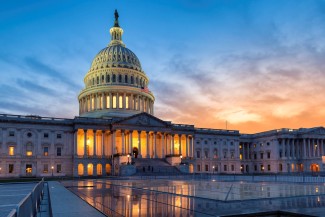Washington, DC—The American Council for an Energy-Efficient Economy released the following statement from Steven Nadel, its executive director, in response to the U.S. House of Representatives passing a bill to raise the debt ceiling that includes various extraneous provisions, including many that repeal energy efficiency investments:
“This bill is a regressive proposition. It says the government will pay its bills only on the condition that households and businesses be burdened with needlessly high utility and fueling costs.
“It’s a loser for the household that wants to install heat pumps or new insulation. It’s a loser for the family that wants to buy its first electric car. It’s a loser for the company that wants to shift to electric trucks. And it’s a loser for every household and business that would see higher operating costs from inefficient appliances and equipment if new energy standards are blocked.
“This should not and will not pass into law.”
Background:
The bill passed today includes provisions—passed for the first time in the House—to repeal the following energy efficiency and electrification investments from the Inflation Reduction Act:
- Reinstated or expanded tax incentives for the installation of heat pumps and home improvements such as insulation (25C credit), and for commercial building retrofits (179D)
- Expanded tax incentives for building highly efficient new homes (45L) and commercial buildings (179D again), including larger incentives for “zero-energy-ready” homes and buildings
- A Neighborhood Access and Equity Grant Program that could be used by local governments across the country to improve neighborhood walkability and ease access to transit, shared bicycles, and other micromobility options
- A revived and modified credit for the purchase of new electric cars, and a first-time credit for the purchase of used electric cars
- A new commercial vehicle tax credit to spur purchases of electric trucks and buses
- A renewed and expanded tax credit for transformative investment in manufacturing facilities (48C), including expansion to cover equipping an industrial plant to reduce greenhouse gas emission by at least 20% (among other uses)
The bill includes the REINS Act, which would block major regulations—including appliance and equipment energy efficiency standards from the Department of Energy and emissions standards for cars and trucks from the Environmental Protection Agency—if they are not proactively approved by both chambers of Congress.
The bill also includes provisions previously passed by the House in HR 1, including:
- Repeals energy efficiency and electrification programs from the Inflation Reduction Act, including the Greenhouse Gas Reduction Fund, High-Efficiency Electric Home Rebate Program, State-Based Home Energy Efficiency Contractor Training Grants, and Assistance for Latest and Zero Building Energy Code Adoption
- Blocks the Department of Energy from finalizing proposed energy efficiency standards for gas and electric stoves

